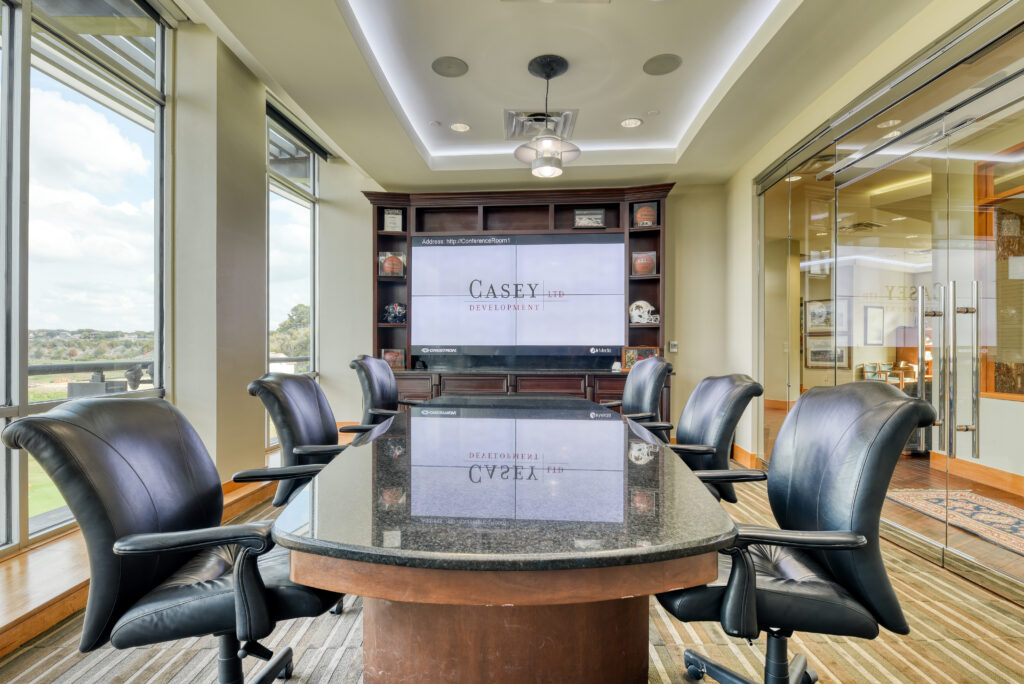Commercial Real Estate Development normally refers to the ground-up construction of commercial investment properties that are leased from a third party. These buildings usually include the following: office buildings, retail centers, industrial property for development, and any other commercially oriented properties. This may also sometimes include multifamily developments such as apartment buildings, and condo projects. In this post we’ll cover what it takes to become a commercial real estate developer.
Get Your License
The first step in becoming a commercial real estate developer is to the state mandated test to receive your license. In order to be a commercial real estate developer in Texas, you must have a license that allows your practice within that jurisdiction. When getting licensed be sure to understand which license you want to receive. Many states have different licenses depending on your goals. For example, there is a difference becoming an agent/salesperson than becoming a broker. Whereas a broker can open their own shop without having any type of supervisor over them, a salesperson or agent is required to work under an active supervisor.

Join Local Professional Organizations
After you have completed and passed your test and received your license you will need to join a local professional organization. This is a step you do not want to skip, as it ensures you will begin to develop and build a solid network that will build a foundation for your new career. You can find these organizations at many of the local real estate investing groups and your local association of realtors for future potential clients. Building relationships within the field you will be working in is vital to your success, this way you have a community of help if you should ever find yourself in a position to need it.
Complete Your First Development Deal
There’s no substitute for hands-on experience. Just like in any other profession, in commercial real estate you’ll learn better and quicker by completing deals. According to experienced commercial real estate developers, the best way to start is to purchase and fix a commercial property. During this process you’ll learn the intricacies of contracts, managing any contractors, how to obtain the proper permits, and more. As you become more familiar with ins and outs of commercial real estate development you’ll start seeing high yield returns on your investments in no time at all!
Stay Ahead of Your Competition with Advanced Certifications
When you’re the best at what you do, you have a target on your back. If you are looking to remain at the top of your game, consider additional or advanced certifications that will build your skillset…and ultimately make your more attractive to future clients. Examples of additional certifications include analyst certification, project manager certification, or associate developer certifications. By having additional tools at your disposal you’ll be able to have more control of your commercial real estate projects and mitigate any potential risk while striving towards high yield returns.
Understand Market Analysis
Before you start building or investing in commercial real estate, it’s important to get to know the market really well. Doing a market analysis means learning how much demand there is for commercial spaces in different places, see what your competition is up to, and keep an eye on new trends in the business world that could affect real estate.
To do this right, you need to look at data like how many buildings are being rented out, what kinds of businesses are moving in, and any big changes happening in the area that might attract more people or businesses. Knowing all this helps you pick the best spots to develop and figure out what kind of buildings will make you the most money.
Secure Financing for Projects
When you’ve got a commercial real estate project in mind, you need money to make it happen. There are a bunch of ways to get funding, like getting a loan from a bank, finding investors who want to put their money into your project, using crowdfunding platforms, or working with Real Estate Investment Trusts (REITs). Each option has its good and bad points.
For example, bank loans might be more traditional, but they come with strict payback rules. Real estate investors can give you more flexibility, but they’ll want a piece of the profits. Crowdfunding is a great way to get a lot of people to invest small amounts, but it requires a lot of marketing. And REITs are great for getting funds without having to deal with property management, but they also mean you have less control. The key is to make a really good pitch to whoever you’re asking for money, showing them how they’re going to get a good return on their investment.
Navigate Zoning and Regulatory Challenges
One of the trickiest parts of real estate development is dealing with all the rules about what you can build and where. Every area has its own zoning laws, which say what kinds of buildings can go in different places, and building codes, which tell you how those buildings have to be constructed.
There are also environmental regulations to think about, like making sure your project isn’t going to harm local wildlife or water sources. To handle all this, you need to work closely with city planners and local authorities. They can help you understand the rules and make sure your project fits within them. Building a good relationship with these folks can make your project go a lot smoother and help you avoid costly mistakes.

Partnerships and Collaborations: The Key to Innovative Projects
When you become a commercial land developer, working together with other professionals isn’t just a good idea—it’s essential. Building strong partnerships with architects, contractors, legal advisors, and various experts can take your projects from good to great. Here’s why: these collaborations bring together different skills and ideas, leading to more creative and effective solutions.
For instance, architects bring a vision for the design and functionality of buildings, while contractors turn these designs into reality. Legal advisors ensure that all aspects of the development process are compliant with laws and regulations, protecting your project from potential legal issues. By combining the expertise of each partner, you can tackle complex problems, find innovative solutions, and ultimately create buildings that stand out in the market.
Moreover, these collaborations can open doors to new opportunities. Architects and contractors often have networks that can lead to new projects or introduce you to potential investors. Legal advisors can provide insights into new markets or regulatory changes that might affect your development plans. In short, building a team of trusted partners not only enhances the quality of your projects but also contributes to the growth and success of your real estate development career.
Casey Development, Ltd: Commercial Real Estate Developers in San Antonio
The experts here at Casey Development have been investing and developing commercial real estate for decades. If you’re looking to learn more about commercial real estate development, interested in starting a career in commercial real estate, or are looking to partner with the best commercial real estate developer in San Antonio, contact Casey Development, Ltd. today!
